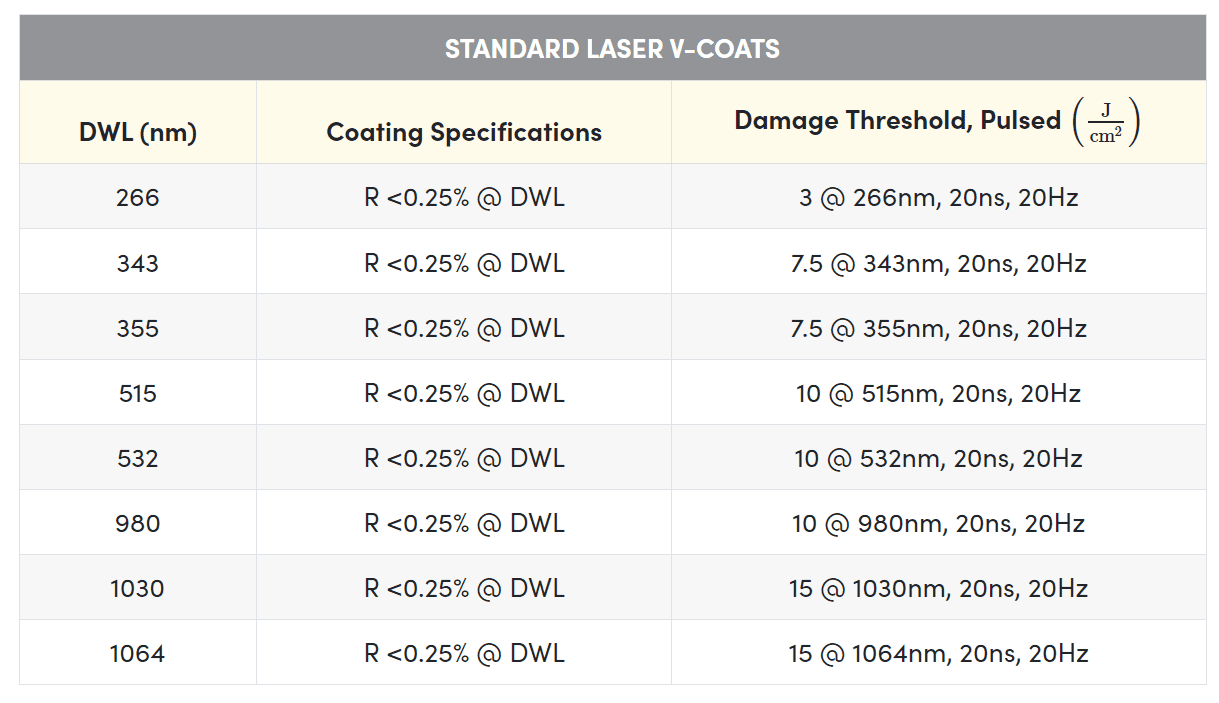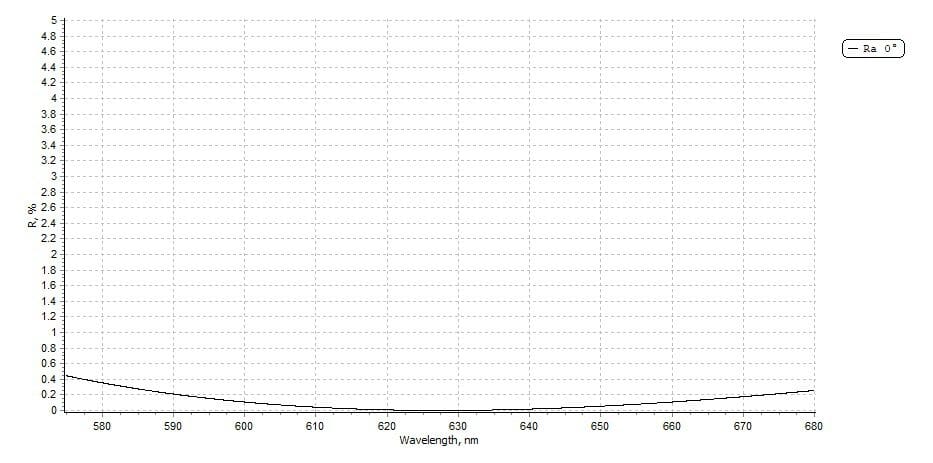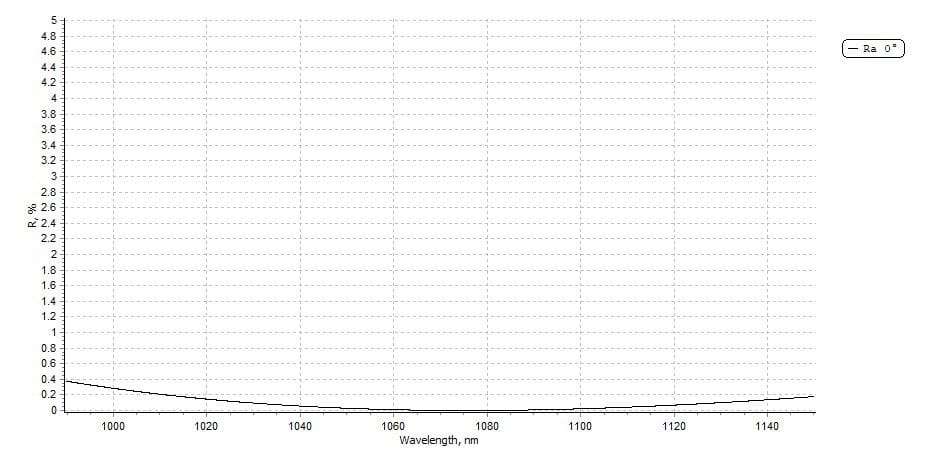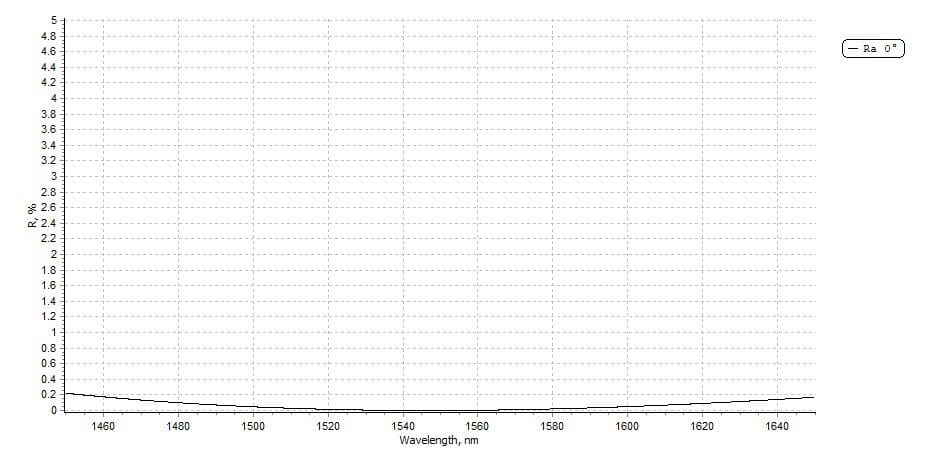Anti-reflection V-coats are a specific type of AR coating designed to enhance transmission within a very narrow wavelength range centered around a specified design wavelength (DWL).
The name "V-coat" derives from the shape of the transmission curve as it relates to wavelength, which forms a "V" with a minimum at the DWL.
V-coats are particularly effective for achieving maximum transmission with single-frequency, narrow linewidth lasers or light sources with a narrow full width at half maximum (FWHM).
Typically, V-coats exhibit a reflectivity of less than 0.25% at the DWL. However, the reflection curve of the coating has a nearly parabolic shape, leading to significantly higher reflectivity at wavelengths other than the DWL (see Figure below).
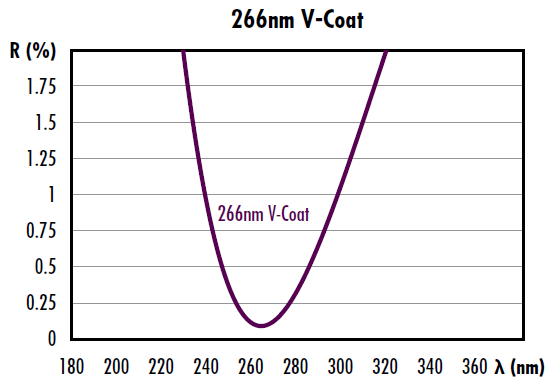
V-Coats are generally composed of two layers with alternating indices of refraction, specifically designed for applications at single wavelengths.
Although not as broad as single-layer antireflection coatings, these coatings are intended for narrower wavelength ranges and achieve significantly lower reflectance.
Typical V-Coatings produced by Notch Optics demonstrate absolute reflectance levels of less than 0.15%. Additionally, they are highly durable and can withstand multiple GW/cm² of laser power fluence.
Table 1 shows the reflectivity and guaranteed laser-induced damage threshold (LIDT) for Notch Optics’ standard laser V-coats.
